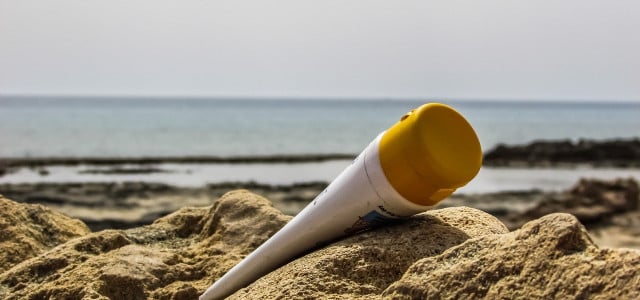
Benzophenone protects the skin from harmful UV radiation and is therefore used in sunscreen, among other things. However, the substance is controversial.
Benzophenone belongs to the chemical group of aromatic ketones. The molecule consists of two hydrocarbon rings that are connected by an additional carbon atom. An oxygen atom is attached to this atom.
However, benzophenone often refers not only to this molecule, but also to some of its variations. These are given numbers in the INCI system, for example benzophenone-3. You can find a detailed description of benzophenone and some of its derivatives in a collection of the International Agency for Research on Cancer (IARC).
What does benzophenone contain?
Benzophenone and some of its variants are found in various products. For a long time, the substances were of interest primarily as soluble UV filters – they penetrate the skin and absorb UV radiation.
- They protect the skin from UV radiation and are therefore used in sun creams
- and protected cosmetics from UV radiation.
According to the IARC, in addition to the actual benzophenone, benzophenone-2 and benzophenone-3 (oxybenzone) were mainly used in cosmetic products and sunscreens.
According to the research center, benzophenone was also found, for example, as a fragrance in cosmetics and as an additive in (especially transparent) plastic products, pesticides and medicines.
Banned in the EU since 2023
The substance has been banned in cosmetics in the EU since November 2023. It has been replaced, among other things, by another chemical UV filter: octocrylene. This has also been criticized for various alleged health risks.
What’s more, this step hardly eliminates the risk of benzophenone: it is a degradation product of octocrylene. This means that the longer a sunscreen is stored, the more octocrylene breaks down into benzophenone. Researchers have even been able to detect benzophenone in unopened sunscreens containing octocrylene that are still in their original packaging.
This is why you should stop using sunscreen from the previous year. With mineral sunscreen, the risk is lower, but not zero – here the UV protection simply decreases over time. But that is also the case with chemical UV filters.
That is why benzophenone has long been controversial
Benzophenone has many useful properties – but also disadvantages. According to the IARC, there is little information on the effects of the substance and its derivatives on the human body. However, there are findings from animal and cell culture experiments:
- The IARC concludes that benzophenone can be carcinogenic in animals and that such an effect in humans cannot be ruled out.
- There are studies on several forms of benzophenone that demonstrate an estrogen-like effect: The IARC finds this effect in a metabolite of benzophenone, 4-hydroxybenzophenone. This review article also finds a hormone-like effect in the actual benzophenone.
-
Studies have shown that benzophenone-3 and benzophenone-4 affect the immune system and can trigger photoallergies in some people. This means that sunlight on the skin that has been applied to it causes allergic reactions.
According to the Federal Institute for Risk Assessment (BfR), 0.01 milligrams per kilogram of body weight is currently considered the limit for the daily intake of benzophenone and its derivatives. However, this assessment dates back to 1970. According to the BfR, many studies on the effects of benzophenone were only carried out after that. With regard to the carcinogenic effect, the BfR assumes that this can only occur above a certain threshold.
Leaderboard: Mineral organic sunscreen
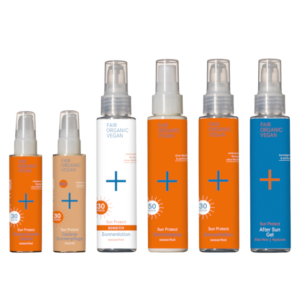 1st placei+m Sun Protect sun protection care
1st placei+m Sun Protect sun protection care
4.8
9
DetailBioNaturel**
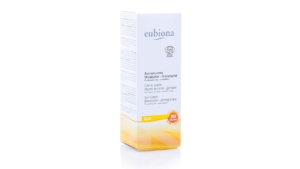 place 2Eubiona organic sunscreen
place 2Eubiona organic sunscreen
4.5
6
DetailBig Green Smile**
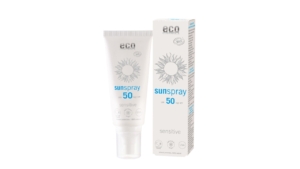 place 3Eco Cosmetics Sun Lotion
place 3Eco Cosmetics Sun Lotion
3.9
27
DetailAvocadostore**
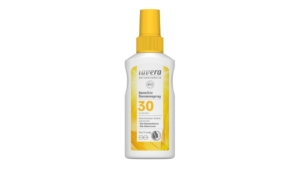 4th placeLavera organic sun protection
4th placeLavera organic sun protection
3.2
60
DetailBioNaturel**
Alternatives to sunscreens containing benzophenone
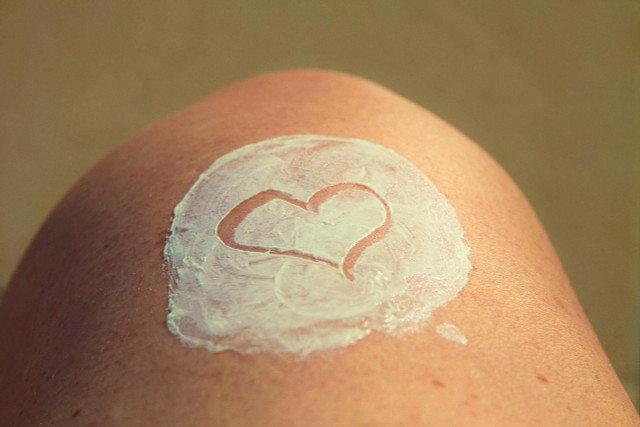
(Photo: CC0 / Pixabay / chezbeate)
It therefore seems sensible to avoid cosmetics containing benzophenone. There is another reason for this: some islands, such as Palau, have banned certain ingredients in sunscreens in recent years, including benzophenone-3. The substance is suspected of promoting coral bleaching and of having other harmful effects on aquatic organisms.
The easiest way to avoid benzophenone in sunscreens is to generally avoid chemical UV filters and instead use creams with mineral UV filters. According to the consumer advice center, the latter are less harmful to the human body and the environment. Among other things, they do not penetrate the skin, but reflect sunlight on the surface of the skin and protect the skin in this way. However, this has the disadvantage that such sunscreens often leave a white residue.
Sun creams with the Natrue or BDIH seal are free of chemical UV filters. However, it can be critical that mineral filters such as titanium dioxide are sometimes present as nanoparticles. They are marked with the additional word (nano). However, their effect has not yet been sufficiently researched. The small particles are not supposed to penetrate the skin. However, they do seem to pose a risk if they are accidentally inhaled, which can easily happen with sun sprays.
Read more on Techzle\.com:
- Organic sunscreen: effective protection without risk?
- Old sunscreen: Can you still use last year’s cream?
- Sunburn? How long you have to wait before you can go back into the sun
Edited by Denise Schmucker
** marked with ** or orange underlined Links to sources are partly affiliate links: If you buy here, you are actively supporting Techzle\.com, because we then receive a small part of the sales proceeds. .